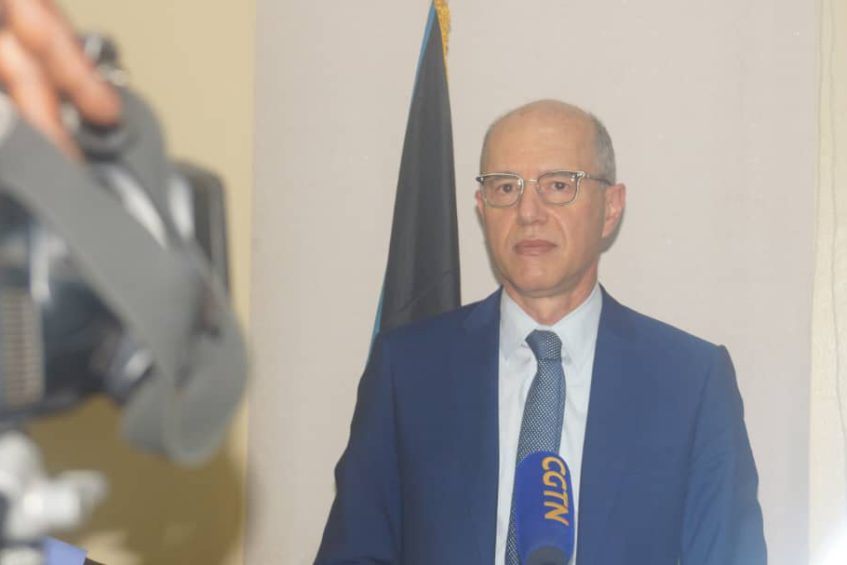
Mr. Niko Hobdari, a senior staff member of the International Monetary Fund who visited South Sudan between March 14-25, 2022 - Courtesy
South Sudan is expected to experience acute food shortage and rise in commodity prices during the coming lean season, the International Monetary Fund has said.
The IMF attributed this to the recent global pandemic and three consecutive years of extensive floods.
The organization made the revelation after its team made an 11-day visit to the country recently.
The team led by senior staff member, Mr. Niko Hobdari from 14th to 25th, held discussions with the authorities on the Staff-Monitored Program and Article IV Consultation
Article IV consultation is when an IMF team of economists visits a country to assess economic and financial developments and discuss the country’s economic and financial policies with government and central bank officials.
Following its overall assessment, the team found that the economy of South Sudan has been hit hard by the global pandemic and three consecutive years of extensive floods.
In a statement obtained by Eye Radio, IMF says 2021 flooding has caused large output losses in the oil and agricultural sectors and exacerbated the country’s difficult humanitarian situation.
As a result, it says a record share of the population is expected to experience acute food insecurity during the coming lean season.
“While the recent rise in global commodity prices from the war in Ukraine will increase South Sudan’s revenues from oil exports, most of the population will experience the impact in the form of higher prices of everyday goods – especially food and fuel,” the statement partly reads.
IMF also commends the government on the removal of restrictions in the foreign-exchange market as it has made it possible for individuals and firms to buy and sell foreign currency at predictable and competitive rates.
This, it says together with prudent control of the money supply by the Bank of South Sudan, resulted in an appreciation of the SSP which has mitigated some of the rises in global prices.
To consolidate these gains, the IMF recommends that the authorities reiterate their commitment to refrain from monetary financing of the deficit and keep money growth under control, continue conducting regular foreign exchange auctions to maintain a market determined exchange rate, and expand the instruments available for foreign exchange and liquidity management.
The mission further welcomed the authorities’ commitment to progressively reduce salary arrears and eliminate them by the end of the fiscal year, which will reduce the adverse impact of rising food and fuel prices due to the war in Ukraine.
Support Eye Radio, the first independent radio broadcaster of news, information & entertainment in South Sudan.
Make a monthly or a one off contribution.
Copyright 2024. All rights reserved. Eye Radio is a product of Eye Media Limited.